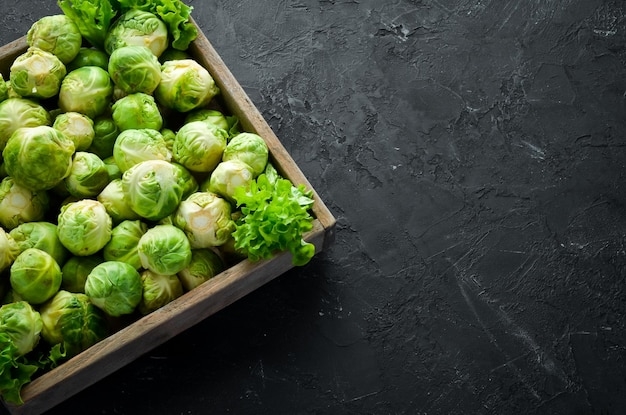Swiss chard is a leafy green vegetable that is packed with essential nutrients. It is an excellent source of vitamins, minerals, and antioxidants that are essential for a healthy body. Swiss chard is a member of the beet family and is sometimes referred to as silverbeet or spinach beet. It has large, dark green leaves that are a rich source of phytonutrients, vitamins, and minerals.
What is Swiss Chard?
Swiss chard is a leafy green vegetable that is native to the Mediterranean region. It is a member of the beet family and is related to other vegetables like spinach, beets, and quinoa. Swiss chard has large, dark green, glossy leaves that are similar in texture to spinach. It has a slightly bitter taste and is often used in Mediterranean and Middle Eastern cuisine.
Nutritional Value of Swiss Chard
Swiss chard is a nutrient-dense food that is rich in vitamins, minerals, and antioxidants. Here is a breakdown of the nutritional value of Swiss chard per 100g:
– Vitamin K: 830% of the Daily Value (DV)
– Vitamin C: 50% of the DV
– Iron: 20% of the DV
– Calcium: 10% of the DV
– Magnesium: 12% of the DV
– Potassium: 9% of the DV
Swiss chard is also a good source of dietary fiber, protein, and vitamin A.
Health Benefits of Swiss Chard
Swiss chard is a nutrient-dense food that provides a variety of health benefits. Here are some of the health benefits of Swiss chard:
1. Rich in Antioxidants
Swiss chard is loaded with antioxidants that help protect the body from free radical damage. The antioxidants in Swiss chard can help lower the risk of chronic diseases such as cancer, heart disease, and Alzheimer’s.
2. Promotes Heart Health
Swiss chard is an excellent source of magnesium, which is essential for a healthy heart. Magnesium helps regulate blood pressure and prevent the risk of hypertension, heart attack, and stroke.
3. Helps Regulate Blood Sugar
Swiss chard is a low glycemic index food that helps regulate blood sugar levels. It is a great food option for people with diabetes as it can help control blood sugar and prevent spikes in blood glucose levels.
4. Promotes Bone Health
Swiss chard is a rich source of vitamin K, which is essential for bone health. Vitamin K helps regulate calcium in the body and prevents the risk of osteoporosis and fractures.
5. Aids Digestion
Swiss chard is a good source of dietary fiber, which helps regulate digestion and prevent constipation. The fiber in Swiss chard can also help promote a healthy gut microbiome and prevent the risk of colon cancer.
How to Use Swiss Chard
Swiss chard can be used in a variety of ways in the kitchen. Here are some ways to use Swiss chard:
1. Sauteed Swiss Chard
Sauteed Swiss chard is a simple and delicious way to enjoy this leafy green. Simply heat some olive oil in a pan and saute the Swiss chard until it is wilted and tender. Add some garlic, salt, and pepper for extra flavor.
2. Swiss Chard Smoothie
Swiss chard can also be used in smoothies for an extra dose of nutrients. Blend up some Swiss chard, frozen fruit, and a liquid of your choice for a nutritious and delicious smoothie.
3. Swiss Chard Chips
Swiss chard chips are a healthy alternative to potato chips. Simply wash and dry the Swiss chard leaves, toss them in olive oil, and bake them in the oven until crispy.
FAQs
Q. Is Swiss chard high in oxalates?
A. Swiss chard is high in oxalates, which can be harmful to people with kidney stones. If you have kidney stones, it is best to limit your intake of Swiss chard.
Q. How do you store Swiss chard?
A. Swiss chard should be stored in a plastic bag in the refrigerator. It will keep for up to a week.
Q. Is Swiss chard a good source of protein?
A. Swiss chard is not a significant source of protein, but it does contain some amino acids.
Q. Can you eat Swiss chard raw?
A. Yes, Swiss chard can be eaten raw. It is often used in salads or as a wrap for sandwiches.
Q. Can you freeze Swiss chard?
A. Yes, Swiss chard can be frozen. It is best to blanch it first to preserve its quality.
Conclusion
Swiss chard is a nutrient-dense food that provides a variety of health benefits. It is an excellent source of vitamins, minerals, and antioxidants that are essential for a healthy body. Swiss chard can be used in a variety of ways in the kitchen and is a great addition to any diet. So next time you are at the grocery store, be sure to pick up some Swiss chard and start reaping the health benefits!

















































